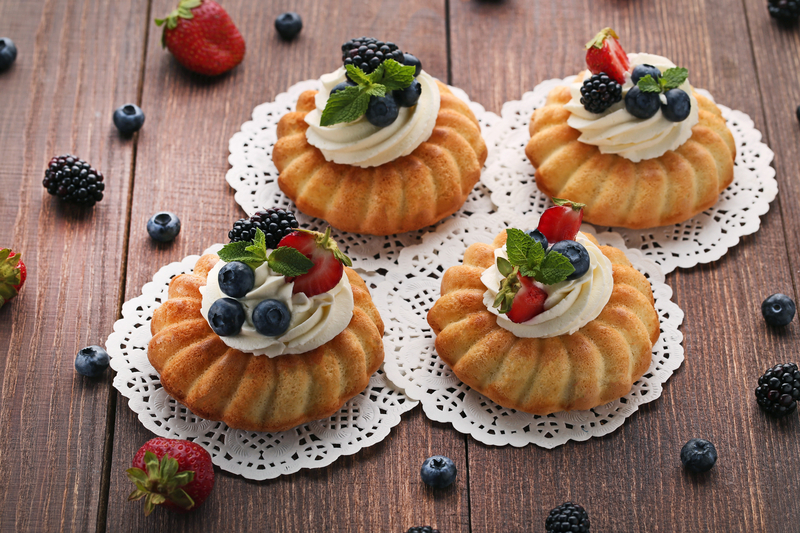 Baking is a delightful and rewarding hobby, and one of the most popular treats to create in the oven is a Bundt cake.
Baking is a delightful and rewarding hobby, and one of the most popular treats to create in the oven is a Bundt cake.
These beautifully shaped cakes have a unique appearance, thanks to their fluted design, and are often the centerpiece of special occasions.
But have you ever wondered if Bundt cakes take longer to bake than regular cakes?
In this article, we’ll delve into the factors that may affect baking times for Bundt cakes and provide some tips for ensuring your Bundt cake bakes to perfection.
The Shape Matters
The primary reason why Bundt cakes might take longer to bake compared to their traditional counterparts is the shape of the pan.
Bundt pans are designed with a hole in the center and intricate patterns on the sides, which can influence the distribution of heat within the cake.
Here’s how the shape plays a role:
- Heat Distribution
The central hole in a Bundt pan allows heat to penetrate the cake from both the outside and the inside.
This dual heating method can lead to more even baking but may also require slightly longer baking times to ensure the cake is cooked through.
- Surface Area
Bundt cakes have a larger surface area exposed to the oven’s heat due to their intricate designs.
This can lead to quicker browning on the exterior of the cake while the interior may still need more time to bake.
As a result, you may need to extend the baking time to avoid an undercooked center.
Batter Thickness and Moisture Content
 The type of batter used in a Bundt cake can also influence the baking time.
The type of batter used in a Bundt cake can also influence the baking time.
Some Bundt cake recipes produce thicker batters with higher moisture content, and this can affect how long it takes for the cake to bake properly.
- Moisture Content
Bundt cakes often contain ingredients like sour cream, yogurt, or fruit purees, which add moisture to the batter.
This extra moisture can slow down the baking process, requiring more time to evaporate and set the cake.
- Thickness of Batter
The intricate designs of Bundt cakes can make it challenging for the batter to reach the center of the cake evenly.
Thicker batters may take longer to flow into all the nooks and crannies, resulting in variations in baking time.
Tips for Baking a Perfect Bundt Cake
Now that we’ve explored why Bundt cakes may take longer to bake, here are some tips to help you achieve a perfectly baked Bundt cake:
- Preheat and Grease Your Pan
Properly preheating your oven and thoroughly greasing your Bundt pan are crucial steps to ensure even baking.
The greasing helps the cake release smoothly, while a hot oven ensures that the cake begins to set immediately.
- Toothpick Test
To determine if your Bundt cake is done, insert a toothpick into the center.
If it comes out clean or with a few crumbs, the cake is ready.
If the toothpick has wet batter clinging to it, the cake needs more time in the oven.
- Adjust the Temperature and Time
If you notice that your Bundt cake is browning too quickly on the outside but remains undercooked inside, you can reduce the oven temperature slightly and extend the baking time.
This will help the cake bake more evenly.
- Tent with Foil
If your Bundt cake is browning excessively on top but still needs more time to bake, you can tent it with aluminum foil.
This will prevent further browning while allowing the cake to continue baking.
Bottom Line – Do Bundt Cakes Take Longer to Bake?
 Baking a Bundt cake can be a delightful experience, but it may indeed take a bit longer than baking a traditional cake due to its unique shape and batter characteristics.
Baking a Bundt cake can be a delightful experience, but it may indeed take a bit longer than baking a traditional cake due to its unique shape and batter characteristics.
However, with a keen understanding of these factors and the right techniques, you can ensure that your Bundt cake emerges from the oven perfectly baked and ready to impress your guests.


